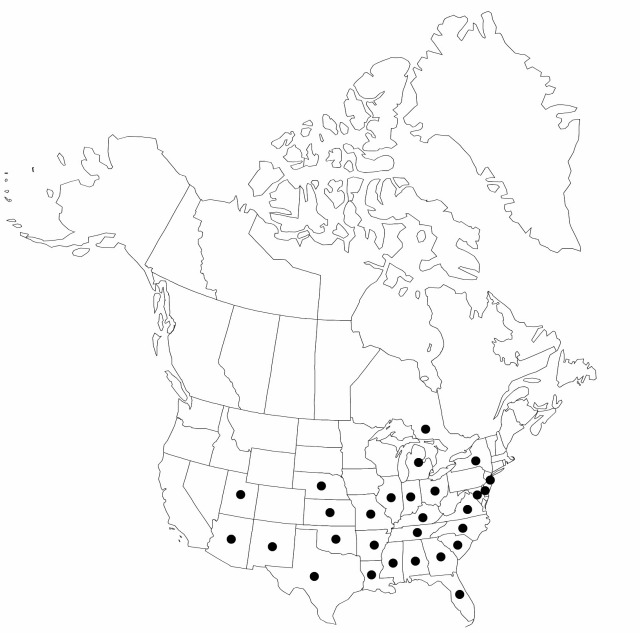Difference between revisions of "Fimbristylis puberula"
Enum. Pl. 2: 289. 1805.
FNA>Volume Importer |
FNA>Volume Importer |
(No difference)
| |
Revision as of 19:07, 24 September 2019
Plants perennial, mostly loosely cespitose, to 100 cm, bases swollen; rhizomes short, knotty, or scaly, slender, contorted. Culms sometimes solitary, narrowly linear, distally angular, glabrous. Leaves ascending, from 1/3 as long to equally as long as culms, glabrous to pubescent; sheaths apically ciliate; ligule essentially absent or (in rhizomatous individuals) present, complete or incomplete; blades narrowly linear, 1–2 mm wide, mostly strongly involute, scabrid-ciliate. Inflorescences: anthelae simple or compound, compact or diffuse, mostly broad, ascending-branching; scapes slender, wandlike, 1 mm thick; lower leafy involucral bracts exceeded by or exceeding panicle. Spikelets variously red-brown, broadly ovoid to lance-cylindric, 5–10 mm; fertile scales broadly ovate, obtuse or obtuse-angled, 2.5–3.5 mm, abaxially glabrous or variously puberulent, midrib excurrent as mucro. Flowers: stamens 3; styles 2-fid, flat, fimbriate. Achenes yellowish to dark brown, lenticular-obovoid, 1 mm, with 11–20 vertical lines of horizontally rectangular or isodiametric, distinct or indistinct pits. 2n = 20.
Distribution

North America.
Discussion
Varieties 2 (2 in the flora).
Selected References
None.
Key
| 1 | Culm bases swollen, knotty, closely joined forming short thick, knotty rhizomes; leaves and sheaths totally pubescent or glabrous; ligule absent or incomplete; backs of involucral sheaths and fertile scales puberulent at least distally. | Fimbristylis puberula var. puberula |
| 1 | Culm bases not swollen, producing several slender, scaly, orange rhizomes; leaves and sheaths mostly glabrous; ligule present, mostly complete; involucral sheaths and fertile scales usually smooth. | Fimbristylis puberula var. interior |